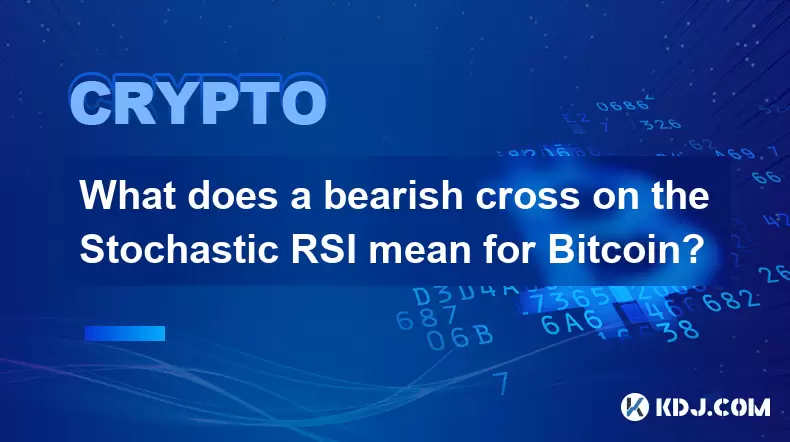-
 Bitcoin
Bitcoin $108,017.2353
-0.81% -
 Ethereum
Ethereum $2,512.4118
-1.58% -
 Tether USDt
Tether USDt $1.0002
-0.03% -
 XRP
XRP $2.2174
-1.03% -
 BNB
BNB $654.8304
-0.79% -
 Solana
Solana $147.9384
-1.76% -
 USDC
USDC $1.0000
-0.01% -
 TRON
TRON $0.2841
-0.76% -
 Dogecoin
Dogecoin $0.1636
-2.09% -
 Cardano
Cardano $0.5726
-1.72% -
 Hyperliquid
Hyperliquid $39.1934
1.09% -
 Sui
Sui $2.9091
-0.59% -
 Bitcoin Cash
Bitcoin Cash $482.1305
0.00% -
 Chainlink
Chainlink $13.1729
-1.54% -
 UNUS SED LEO
UNUS SED LEO $9.0243
-0.18% -
 Avalanche
Avalanche $17.8018
-1.90% -
 Stellar
Stellar $0.2363
-1.69% -
 Toncoin
Toncoin $2.7388
-3.03% -
 Shiba Inu
Shiba Inu $0.0...01141
-1.71% -
 Litecoin
Litecoin $86.3646
-1.98% -
 Hedera
Hedera $0.1546
-0.80% -
 Monero
Monero $311.8554
-1.96% -
 Dai
Dai $1.0000
-0.01% -
 Polkadot
Polkadot $3.3473
-2.69% -
 Ethena USDe
Ethena USDe $1.0001
-0.01% -
 Bitget Token
Bitget Token $4.3982
-1.56% -
 Uniswap
Uniswap $6.9541
-5.35% -
 Aave
Aave $271.7716
0.96% -
 Pepe
Pepe $0.0...09662
-1.44% -
 Pi
Pi $0.4609
-4.93%
Do I have to pay taxes for buying and selling Bitcoin? What are the requirements for tax declaration?
When buying Bitcoin, no immediate tax obligation arises, but selling it triggers capital gains tax, which varies based on holding period and jurisdiction.
Apr 28, 2025 at 02:29 pm

Understanding Tax Obligations for Bitcoin Transactions
When engaging in the buying and selling of Bitcoin, many individuals are unsure about their tax responsibilities. The answer to whether you have to pay taxes on Bitcoin transactions is generally yes, depending on your jurisdiction. Different countries have varying regulations, but most consider cryptocurrencies as taxable assets. This article will delve into the specifics of tax obligations, the requirements for tax declaration, and how to navigate this complex landscape.
Tax Obligations When Buying Bitcoin
When you purchase Bitcoin, you typically do not have an immediate tax obligation. However, the cost basis of your Bitcoin is established at the time of purchase. This cost basis is crucial for calculating capital gains or losses when you eventually sell your Bitcoin. For example, if you buy 1 BTC at $30,000, your cost basis for that Bitcoin is $30,000.
Tax Obligations When Selling Bitcoin
The situation changes when you sell Bitcoin. In most jurisdictions, selling Bitcoin is considered a taxable event. The profit or loss from the sale is calculated by subtracting the cost basis from the selling price. If you sell the aforementioned 1 BTC for $40,000, you have a capital gain of $10,000 ($40,000 - $30,000). This gain is typically subject to capital gains tax, which can be either short-term or long-term depending on how long you held the Bitcoin before selling.
Short-Term vs. Long-Term Capital Gains
The duration of your holding period can significantly impact your tax liability. Short-term capital gains are profits from assets held for one year or less and are usually taxed at your ordinary income tax rate. Conversely, long-term capital gains apply to assets held for more than one year and are often taxed at a lower rate. For instance, if you held the Bitcoin for 13 months before selling, you would be subject to long-term capital gains tax on the $10,000 profit.
Tax Declaration Requirements
To comply with tax laws, you must accurately report your Bitcoin transactions on your tax return. Here are the steps to follow for tax declaration:
- Gather Transaction Records: Collect all records of your Bitcoin transactions, including purchase and sale dates, amounts, and prices.
- Calculate Gains and Losses: Determine your capital gains or losses for each transaction by subtracting the cost basis from the selling price.
- Complete Tax Forms: Depending on your country, you may need to fill out specific forms. In the United States, for example, you would report these gains or losses on Schedule D of Form 1040.
- Report on Tax Return: Include the calculated gains or losses on your tax return. Ensure you follow the specific guidelines provided by your tax authority.
Record-Keeping for Bitcoin Transactions
Maintaining detailed records of your Bitcoin transactions is essential for accurate tax reporting. You should keep records of:
- Date of each transaction
- Amount of Bitcoin bought or sold
- Purchase and sale prices
- Fees associated with transactions
- Wallet addresses and exchange details
These records will help you calculate your tax liability and provide evidence in case of an audit.
Tax Implications of Using Bitcoin for Purchases
Using Bitcoin to purchase goods or services can also have tax implications. In many jurisdictions, using Bitcoin as a form of payment is considered a taxable event. The value of the Bitcoin at the time of the transaction is used to determine the gain or loss. For example, if you use 0.1 BTC to buy a product when 1 BTC is worth $35,000, you are effectively spending $3,500. If your cost basis for that 0.1 BTC was $3,000, you would have a capital gain of $500 ($3,500 - $3,000) to report.
Navigating Tax Laws in Different Jurisdictions
Tax laws regarding cryptocurrencies vary significantly by country. Here are a few examples:
- United States: The IRS treats Bitcoin as property, subject to capital gains tax. You must report all transactions on your tax return.
- United Kingdom: HMRC considers Bitcoin as an asset, and gains are subject to Capital Gains Tax. There is an annual exemption, but it applies to all capital gains, not just those from cryptocurrencies.
- Canada: The CRA treats Bitcoin as a commodity. Gains are taxed as business income or capital gains, depending on the nature of your transactions.
It's crucial to consult with a tax professional familiar with the laws in your jurisdiction to ensure compliance.
Frequently Asked Questions
Can I deduct losses from Bitcoin transactions on my tax return?
Yes, in many jurisdictions, you can deduct capital losses from Bitcoin transactions against your capital gains. However, the rules for deducting losses can be complex, and you should consult with a tax professional to understand the specific regulations in your country.Do I need to report Bitcoin transactions if I didn't make a profit?
Yes, you are required to report all Bitcoin transactions, regardless of whether you made a profit or incurred a loss. Accurate reporting is essential for compliance with tax laws.What happens if I don't report my Bitcoin transactions?
Failing to report Bitcoin transactions can lead to penalties and fines. Tax authorities are increasingly focusing on cryptocurrency transactions, and non-compliance can result in audits and legal consequences.Can I use cryptocurrency tax software to help with my tax reporting?
Yes, there are several software solutions designed to help with cryptocurrency tax reporting. These tools can track your transactions, calculate gains and losses, and generate the necessary tax forms. However, it's still important to review the results and consult with a tax professional to ensure accuracy and compliance.
Disclaimer:info@kdj.com
The information provided is not trading advice. kdj.com does not assume any responsibility for any investments made based on the information provided in this article. Cryptocurrencies are highly volatile and it is highly recommended that you invest with caution after thorough research!
If you believe that the content used on this website infringes your copyright, please contact us immediately (info@kdj.com) and we will delete it promptly.
- Bitcoin, Kiyosaki, and Acquisition: A Perfect Storm?
- 2025-07-05 22:35:14
- Cardano vs. Solana: The $500 Dream and a Payments Disruptor
- 2025-07-05 22:50:13
- Subway Surfers on PC: Level Up Your Experience, No Train Ticket Needed!
- 2025-07-05 22:35:14
- Ray Dalio, Bitcoin, and Disruptions: Navigating the Future of Finance
- 2025-07-05 23:10:13
- Yu Darvish's Padres Return: A Coin Flip?
- 2025-07-05 22:50:13
- Undead Blocks Rises Again: Avalanche Blockchain, Blackhole Partnership, and a Roadmap to 2026
- 2025-07-05 22:55:12
Related knowledge

What is the Woodies CCI indicator and can it be used for Bitcoin?
Jul 04,2025 at 05:14pm
Understanding the Woodies CCI IndicatorThe Woodies CCI indicator is a variation of the traditional Commodity Channel Index (CCI), which was originally developed by Donald Lambert. The standard CCI measures the current price level relative to an average price over a given period, typically 14. However, the Woodies version modifies this calculation to mak...

How to use indicators to trade the opening range breakout for Bitcoin CME futures?
Jul 05,2025 at 07:35pm
What Is the Opening Range Breakout Strategy?The opening range breakout (ORB) strategy is a popular trading technique used in both traditional markets and cryptocurrency futures, particularly for Bitcoin on the CME. This method involves identifying a specific price range formed during the early phase of a trading session and then taking positions when th...

What does a bearish cross on the Stochastic RSI mean for Bitcoin?
Jul 05,2025 at 07:18pm
Understanding the Stochastic RSI IndicatorThe Stochastic RSI (Relative Strength Index) is a momentum oscillator used in technical analysis to identify overbought or oversold conditions in an asset's price. It combines two well-known indicators — the RSI and the Stochastic Oscillator — to provide more nuanced signals than either could alone. The Stochast...

How to interpret the interaction between Bitcoin's price and the Ichimoku baseline (Kijun-sen)?
Jul 05,2025 at 11:42pm
Understanding the Ichimoku Baseline (Kijun-sen) in Technical AnalysisThe Ichimoku Cloud, also known as Ichimoku Kinko Hyo, is a comprehensive technical analysis tool that provides insights into momentum, trend direction, and potential support/resistance levels. Within this system, the Kijun-sen, or baseline, plays a crucial role. It is calculated by ave...

How to set alerts for moving average crosses on a Bitcoin chart?
Jul 05,2025 at 09:21pm
Understanding Moving Average Crosses in Bitcoin TradingMoving average crosses are one of the most commonly used technical indicators among cryptocurrency traders. In the context of Bitcoin, these signals help identify potential trend reversals or confirm ongoing trends. A moving average cross occurs when a short-term moving average (e.g., 9-day EMA) int...

What is a squeeze momentum indicator and how does it work for Bitcoin?
Jul 05,2025 at 07:32pm
Understanding the Squeeze Momentum IndicatorThe Squeeze Momentum Indicator is a technical analysis tool used by traders to identify potential breakout opportunities in financial markets, including cryptocurrencies like Bitcoin. It was developed by John Carter and is widely used among active traders who seek to capture volatility expansions after periods...

What is the Woodies CCI indicator and can it be used for Bitcoin?
Jul 04,2025 at 05:14pm
Understanding the Woodies CCI IndicatorThe Woodies CCI indicator is a variation of the traditional Commodity Channel Index (CCI), which was originally developed by Donald Lambert. The standard CCI measures the current price level relative to an average price over a given period, typically 14. However, the Woodies version modifies this calculation to mak...

How to use indicators to trade the opening range breakout for Bitcoin CME futures?
Jul 05,2025 at 07:35pm
What Is the Opening Range Breakout Strategy?The opening range breakout (ORB) strategy is a popular trading technique used in both traditional markets and cryptocurrency futures, particularly for Bitcoin on the CME. This method involves identifying a specific price range formed during the early phase of a trading session and then taking positions when th...

What does a bearish cross on the Stochastic RSI mean for Bitcoin?
Jul 05,2025 at 07:18pm
Understanding the Stochastic RSI IndicatorThe Stochastic RSI (Relative Strength Index) is a momentum oscillator used in technical analysis to identify overbought or oversold conditions in an asset's price. It combines two well-known indicators — the RSI and the Stochastic Oscillator — to provide more nuanced signals than either could alone. The Stochast...

How to interpret the interaction between Bitcoin's price and the Ichimoku baseline (Kijun-sen)?
Jul 05,2025 at 11:42pm
Understanding the Ichimoku Baseline (Kijun-sen) in Technical AnalysisThe Ichimoku Cloud, also known as Ichimoku Kinko Hyo, is a comprehensive technical analysis tool that provides insights into momentum, trend direction, and potential support/resistance levels. Within this system, the Kijun-sen, or baseline, plays a crucial role. It is calculated by ave...

How to set alerts for moving average crosses on a Bitcoin chart?
Jul 05,2025 at 09:21pm
Understanding Moving Average Crosses in Bitcoin TradingMoving average crosses are one of the most commonly used technical indicators among cryptocurrency traders. In the context of Bitcoin, these signals help identify potential trend reversals or confirm ongoing trends. A moving average cross occurs when a short-term moving average (e.g., 9-day EMA) int...

What is a squeeze momentum indicator and how does it work for Bitcoin?
Jul 05,2025 at 07:32pm
Understanding the Squeeze Momentum IndicatorThe Squeeze Momentum Indicator is a technical analysis tool used by traders to identify potential breakout opportunities in financial markets, including cryptocurrencies like Bitcoin. It was developed by John Carter and is widely used among active traders who seek to capture volatility expansions after periods...
See all articles

























































































